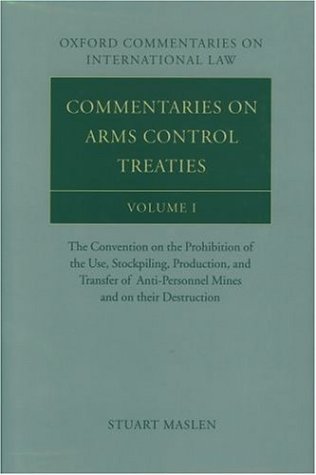
In September 1997, States meeting in Oslo adopted a new international legal instrument, the Convention on the Prohibition on the Use, Stockpiling, Production and Transfer of Anti-Personnel Mines and on their Destruction. Hailed as a breakthrough after the failure of negotiations held within the auspices of the United Nations to agree on a total ban on anti-personnel mines, the Convention entered into force in less than two years, and has already attracted more than 140 parties.
Generally regarded as a hybrid of arms control and humanitarian law, it marked the culmination of many years of energetic campaigning by hundreds of organizations worldwide. Yet some of its core provisions remain the subject of contention, and major military powers remain outside its purview.
In addition to offering a comprehensive interpretation of the Convention's provisions article by article, this commentary describes the development and use of anti-personnel mines, assesses their military utility, and reviews the legal antecedents to the Convention as well as the unusual negotiating process that resulted in its adoption.
An overview of the principles of treaty interpretation is provided for non-specialists, and extensive source material, including the various drafts of the Convention, are included as appendixes.